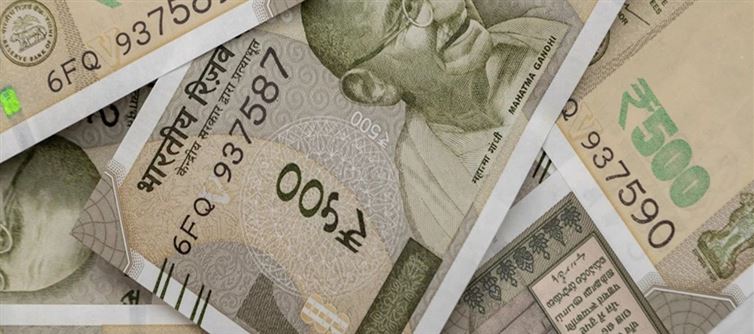
indians residing in gulf nations like saudi arabia and the United Arab Emirates (UAE) have increased their remittances back to india as a result of the devaluation of the indian rupee.
It's crucial to remember that the rupee has lost value in relation to the AED, the currency of the United Arab Emirates. One AED is currently worth around Rs 23.5, which is the lowest since the beginning of April. Non-resident indians (NRIs) are sending money home in large quantities as a result of the rupee's decline in value.
Since june 19, the number of AED-INR transactions has increased. NRIs are no longer waiting for additional devaluation, according to officials at currency exchange houses. Individuals who own even a modest sum of money are sending it right away. Gulf news was informed by a senior executive at a uae exchange firm that "last thursday was the best day in recent weeks to send money through AED-INR." He added that the majority of NRIs kept sending money even if the rupee momentarily appreciated to 23.46.
Remittances Usually Dip in June
In june, remittances often decline. This is due to the fact that many indians utilize their summer vacations to travel and incur additional costs. The pattern has altered this year, though, as a result of the rupee's decline in value. Even over the weekend, remittance volumes stayed consistent, and they are predicted to continue to do so on Monday.
Exchange house officials claim that people sending money will profit if the rupee stays weak or declines even more in July. A government source stated, "If the rates stay at this level or drop again, it will be a double advantage."
Growth Seen Despite Geopolitical Uncertainty
Notably, the expansion has occurred in spite of geopolitical unpredictability, such as the Israeli-Iranian conflict. Such occurrences usually cause investors to seek refuge in the US dollar. But gold has fulfilled that function this time.
To put it simply, NRIs have benefited from the rupee's drop in value. Spending less AED allows them to send more rupees to India. Consequently, they are utilizing this chance and sending more money home.
It's crucial to remember that the rupee has lost value in relation to the AED, the currency of the United Arab Emirates. One AED is currently worth around Rs 23.5, which is the lowest since the beginning of April. Non-resident indians (NRIs) are sending money home in large quantities as a result of the rupee's decline in value.
Since june 19, the number of AED-INR transactions has increased. NRIs are no longer waiting for additional devaluation, according to officials at currency exchange houses. Individuals who own even a modest sum of money are sending it right away. Gulf news was informed by a senior executive at a uae exchange firm that "last thursday was the best day in recent weeks to send money through AED-INR." He added that the majority of NRIs kept sending money even if the rupee momentarily appreciated to 23.46.
Remittances Usually Dip in June
In june, remittances often decline. This is due to the fact that many indians utilize their summer vacations to travel and incur additional costs. The pattern has altered this year, though, as a result of the rupee's decline in value. Even over the weekend, remittance volumes stayed consistent, and they are predicted to continue to do so on Monday.
Exchange house officials claim that people sending money will profit if the rupee stays weak or declines even more in July. A government source stated, "If the rates stay at this level or drop again, it will be a double advantage."
Growth Seen Despite Geopolitical Uncertainty
Notably, the expansion has occurred in spite of geopolitical unpredictability, such as the Israeli-Iranian conflict. Such occurrences usually cause investors to seek refuge in the US dollar. But gold has fulfilled that function this time.
To put it simply, NRIs have benefited from the rupee's drop in value. Spending less AED allows them to send more rupees to India. Consequently, they are utilizing this chance and sending more money home.




 click and follow Indiaherald WhatsApp channel
click and follow Indiaherald WhatsApp channel